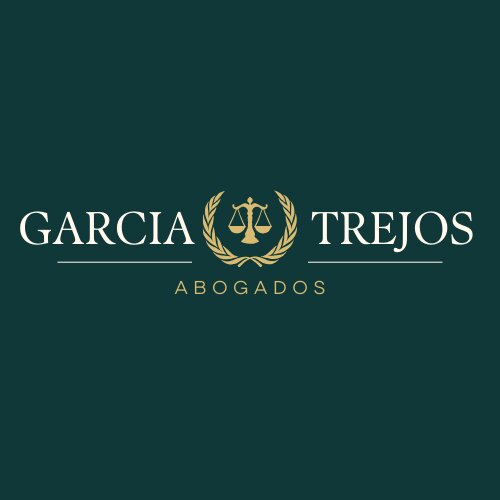Best Collaborative Law Lawyers in Chitré
Share your needs with us, get contacted by law firms.
Free. Takes 2 min.
Free Guide to Hiring a Family Lawyer
List of the best lawyers in Chitré, Panama
About Collaborative Law in Chitré, Panama
Collaborative Law in Chitré, Panama, is a legal approach designed to resolve disputes amicably without going to court. It involves a cooperative process where both parties work with their attorneys to reach a mutually beneficial agreement. This practice is particularly useful in family law, business disputes, and other contexts where maintaining a relationship post-dispute is important. Chitré, being a growing urban area, has seen an increased demand for legal services that prioritize harmony and efficiency.
Why You May Need a Lawyer
Collaborative Law is beneficial in several situations. If you're going through a divorce and wish to minimize conflict for the sake of children or personal peace, Collaborative Law can provide a more amicable process. Business partners wanting to dissolve their partnership without costly litigation may also benefit. This approach is also suitable for resolving inheritance disputes among family members, where preserving family relations is a priority. Having a lawyer to guide you through the Collaborative Law process ensures that your rights are protected while seeking a fair resolution.
Local Laws Overview
Key aspects of local laws in Chitré relevant to Collaborative Law include Panama's legal framework, which supports alternative dispute resolution through its Civil Procedure Code. The law encourages settling disputes out of court where possible. Additionally, Panama's legal environment respects the confidentiality agreements that are often a vital part of the Collaborative Law process. Parties are encouraged to enter into such agreements to ensure that discussions and negotiations remain private and protected.
Frequently Asked Questions
What is Collaborative Law?
Collaborative Law is a legal process that enables individuals to resolve disputes without court intervention by working together cooperatively with the help of lawyers.
How does Collaborative Law differ from mediation?
While both involve dispute resolution outside court, Collaborative Law involves each party having a lawyer to assist them, whereas mediation often includes a neutral third-party mediator.
Is Collaborative Law recognized in Panama?
Yes, it is recognized and supported by Panama’s legal system as a beneficial alternative dispute resolution method.
What types of cases are suitable for Collaborative Law?
Family law matters, business disputes, inheritance issues, and other civil cases where parties seek a private and amicable resolution are suitable.
Are agreements reached through Collaborative Law legally binding?
Yes, agreements reached can be formalized into legally binding contracts.
Do both parties need a lawyer in Collaborative Law?
Yes, each party must have their own lawyer to ensure fair representation and guidance.
What happens if the Collaborative Law process fails?
If the process fails, parties may proceed to litigation, but often they will try to resolve matters by other alternative means first.
Is Collaborative Law cost-effective?
Often, yes. It can be more cost-effective than litigation due to its structured yet flexible nature that saves time and resources.
How long does the Collaborative Law process take?
The duration varies per case; however, it generally resolves faster than court proceedings.
What is the role of a lawyer in the Collaborative Law process?
Lawyers in Collaborative Law serve as advisors to their clients helping them understand legal implications and facilitate constructive discussions.
Additional Resources
For more information on Collaborative Law, consider reaching out to the Panamanian Bar Association which can provide guidance and recommendations for experienced local attorneys. The local courthouse in Chitré also has resources available for alternative dispute resolution methods. Another helpful organization is Instituto de Resolución de Conflictos de Panamá, which offers information and support for collaborative processes.
Next Steps
If you need legal assistance, start by researching and contacting a qualified Collaborative Law attorney in Chitré. Prepare a list of your goals and any questions you have beforehand. Attend consultations to find a lawyer who understands your needs and can guide you through the process. Remember to gather all necessary documentation related to your case, and remain open to solutions that may achieve your objectives while preserving relationships.
Lawzana helps you find the best lawyers and law firms in Chitré through a curated and pre-screened list of qualified legal professionals. Our platform offers rankings and detailed profiles of attorneys and law firms, allowing you to compare based on practice areas, including Collaborative Law, experience, and client feedback.
Each profile includes a description of the firm's areas of practice, client reviews, team members and partners, year of establishment, spoken languages, office locations, contact information, social media presence, and any published articles or resources. Most firms on our platform speak English and are experienced in both local and international legal matters.
Get a quote from top-rated law firms in Chitré, Panama — quickly, securely, and without unnecessary hassle.
Disclaimer:
The information provided on this page is for general informational purposes only and does not constitute legal advice. While we strive to ensure the accuracy and relevance of the content, legal information may change over time, and interpretations of the law can vary. You should always consult with a qualified legal professional for advice specific to your situation.
We disclaim all liability for actions taken or not taken based on the content of this page. If you believe any information is incorrect or outdated, please contact us, and we will review and update it where appropriate.








